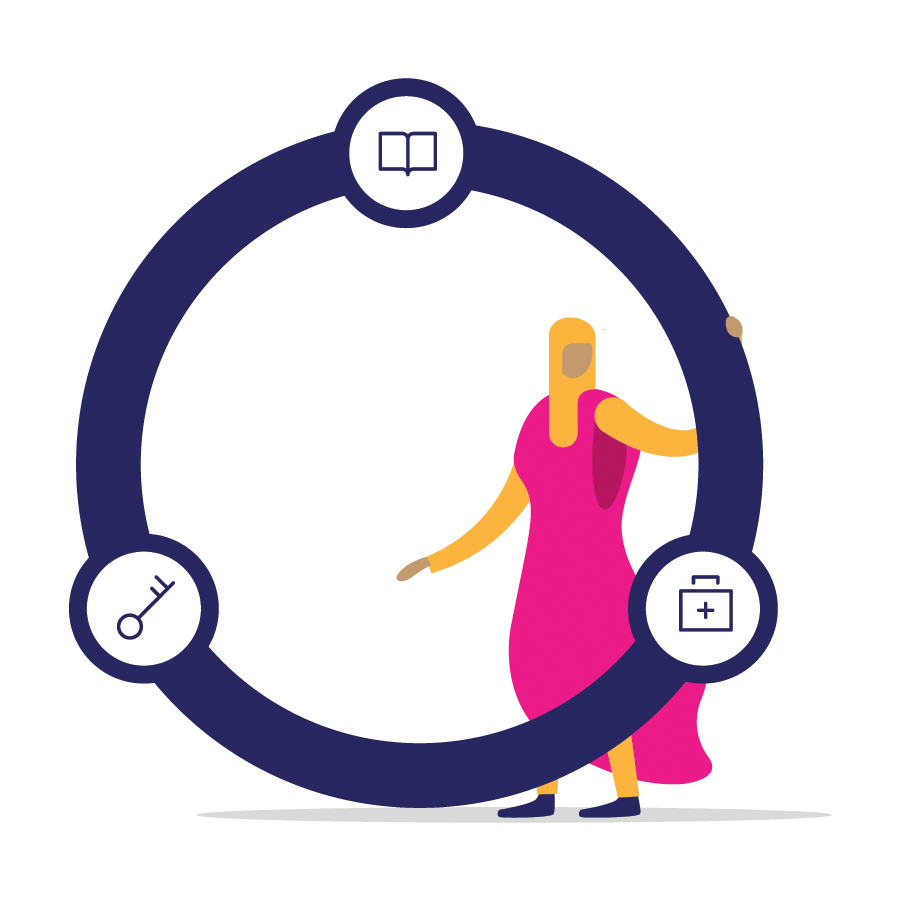Subscribe to our newsletter to receive the latest SafeAccess articles, straight to your inbox.
sign upWe know that due to prevailing abortion stigma, women will often want their safe abortion services to be discreet. Although non-disclosure can reinforce stigma, keeping their service private is a pragmatic decision that clients often make to protect themselves from discrimination.

So that women feel safe to seek a safe abortion or post-abortion care service, as providers, it is important that we reassure women that services are not only medically safe, but also confidential. In this article, we share the evidence for why privacy should be a priority and tips from Marie Stopes International (MSI) on how we demonstrate our commitment to client confidentiality.
Women prioritise privacy: the evidence
A recent review found that even in settings where safe abortion care is legally permitted, many women continue to seek unsafe services, or informal sector abortions as the report refers to them, as clients view informal abortions to be more confidential. For these women, safe does not necessarily mean medically safe, but instead confidential and safe from being found out. As the paper shared:
“Formal sector abortions carried the risks of being seen and kept details of the women who sought abortion meaning that the women could be easily identified as having had an abortion… Women in Great Britain and Zambia reported fear of violence from their families, being ostracised from the community and losing their livelihoods [if found out]”
For these women, the risk of having their abortion discovered was more concerning than the medical risks involved with an unsafe service.
This evidence aligns with findings from Marie Stopes International’s My Body, My Voice report. For the 1,900+ clients interviewed, confidentiality was clearly a priority. 37.3% reported that they knew of an alternative provider, but chose to travel further for a service with Marie Stopes International. Although one in five women did so for brand reputation (21.8%), confidentiality concerns played a role for just under 1 in 10 women (8.2%).
Women may feel that leaving their community to seek a safe abortion service elsewhere helps to avoid the risk of being seen. A risk that, in some cases, drives women to seek unsafe services instead.
“Most women are aware of abortion law and safe practices. However, the idea that abortion is wrong is so ingrained in their minds that they might not go to a government or registered site to get a service, as they’re scared of being exposed to their community. The fear that society might have a negative impression of them still acts as a major factor for practicing unsafe abortion.” - Bhawana Shakya, Director at Marie Stopes Nepal
Four ways to deliver confidential abortion services
To ensure women feel confident to access safe abortion care, as providers, we must ensure that services are confidential and that clients are aware that their privacy is prioritised. Safe abortion services can achieve this in the following ways:
1. Operate facilities in a discreet, confidential way
When delivering services, ensure that your service facility prioritises privacy for clients:
- Speak with a quiet voice and never shout a client’s full name or service
- Ensure there is audio-visual privacy in the consultation room, so that the client does not feel that they might be overheard
- If you have a reception desk, ensure it is adequately private, so clients feel confident to speak to the receptionist without other clients hearing
- Do not separate clients based on their service type and do not label rooms based on the service being delivered
- Tailor opening hours to align with times that women can access services in a discreet way, for example, in the evenings or during a lunch break
- Consider offering advice and information over the phone, for example, via a hotline or contact centre, in case clients would rather speak to someone over the phone.
- Think about how much information you ask of clients, particularly during the first interaction, so that they do not have to provide details on their address, their personal life, or other members of their family, unless it’s necessary from a clinical or safeguarding perspective, or a government reporting requirement.
2. Ensure clients are aware of your commitment to privacy
So that clients are aware that your service prioritises privacy, ensure that you have clear data privacy protocols in place and that clients are aware of them.
For example, ensure that client records are kept in a safe and private place, never leaving them in a space accessible to other individuals and ensuring they are either kept safe digitally, or in a secure, locked cabinet or cupboard.
You can also put up posters in your services that demonstrate your commitment to data privacy and security, including details on who clients can speak to if they have any questions or concerns about their data or confidentiality protocols.
3. Deliver safe abortion services as part of integrated care
Clinics that offer a range of sexual and reproductive health or primary care services can offer a more confidential experience for clients, as only the service provider will know what service the client is seeking. In our client exit interviews, 10.9% of clients shared that they chose Marie Stopes International over an alternative provider because our centres offer additional general health services.
In addition, safe abortion clients who have travelled a fair distance for their service might be interested in receiving another service during the same visit. Women might choose to also receive a cervical cancer or sexual health screening, or a form of post-abortion contraception. Specialist abortion clinics should also be named and designed in a way that’s appropriate and discreet.
4. Counsel women on the privacy implications of abortion methods
At MSI, our centres provide clients with a choice of both surgical and medical abortion. The right choice of method will depend on each client’s preferences. For example, their choice will be influenced by whether a woman feels more comfortable taking medication at home or would prefer the whole process to be completed quickly, in the clinic.
Ensure that all clients receive quality counselling on both surgical and medical methods, and the privacy implications of each. For example, clients should be aware that a medical abortion could be harder to keep secret after leaving the facility. Feeling unwell, needing to rest, or experiencing heavy blood loss may result in people close to the client asking questions. This can be particularly difficult for women living in low-income settings, without access to a private toilet or washing facilities.
As service providers working to eliminate unsafe abortion, we must strive to be client-centred and meet the reasons that women continue to seek unsafe services. This means ensuring that services are not only medically safe, but importantly, private and confidential, too.






